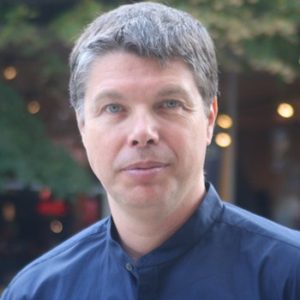Discussion of the Three Treasures
Jing, Qi and Shen— the three treasures.
These are essentials that pervade our thinking as East Asian medicine practitioners. And yet, as fundamental as they are, these three are not so easy to nail down.
They are concepts from another time and culture, and they are present and unfolding in your experience as you read this.
If you are looking for something materially tangible to the Western mind, there is a lot you’ll miss. If you are seeking something of an ancient mystery, you’ll also go wide of the mark.
Listen in to this conversation on Jing, Qi and Shen and their relation to other key aspects of Chinese medicine.
In This Conversation We Discuss:
- Level and location of illness
- The importance of understanding the basics of excess and deficiency
- An unusual way to treat a stubborn case of acne
- Is the yang not being held down by the yin, or is the yin not being uplifted enough be a strong yang?
- Because the seven emotions are not tangible, they are formless and have a profound effect on our health
- The importance of thinking in terms of temperature
- The zang organs are deep and have to do with the metabolization of what comes in through the fu
- Dao De Jing chapter 42
- The essential relationship of clear and turbid
- The shift that happens without us being aware of it
- The body is not designed to heal, it’s designed to survive and the greatest survival mechanism we have is denial and forgetfulness
- There is no way to “know” the yuan qi
- Attending to the yuan qi
 I was born into a multicultural, multilingual, extremely eccentric family, so it was only natural I would think it a good idea to leave the states at 18 to live in China for 28 years. Fortunately, my choice worked out well–it doesn’t always. Along with having no shortage of bad teachers excited to make money and fame at the expense of the foreigner, I met three great teachers who took me beyond the PRC and into the heart of the Chinese arts.
I was born into a multicultural, multilingual, extremely eccentric family, so it was only natural I would think it a good idea to leave the states at 18 to live in China for 28 years. Fortunately, my choice worked out well–it doesn’t always. Along with having no shortage of bad teachers excited to make money and fame at the expense of the foreigner, I met three great teachers who took me beyond the PRC and into the heart of the Chinese arts.
Each was painfully aware that the true power within the Chinese arts was dying, each angry that modern Chinese had no understanding of the depths of their own culture, and each heartbroken that their own children simply did not have what it took to carry on their knowledge. The bittersweet reality for all of us was that the one person who cared to document and train with literally everything he had was an American.
What I lost in not being Chinese, I gained in not being Chinese. Certainly some things were never available to me as a foreigner, but then again none of my teachers had to follow the social mores which would have been forced upon them if I was Chinese.
My advice to all who wish to learn as I did: understand that there is no perfect, and maximize the good of your situation while minimizing the bad–there will always be both and whichever we dwell on will be what marks us.
That, and smile. Being good natured has opened more doors for me than anything else ever has.
Links and Resources:
In our discussion we referenced Spark in the Machine, which goes into how Western embryology informs Chinese medicine physiology. You can also hear an interview on Everyday Acupuncture Podcast with Daniel Keown, the author.
